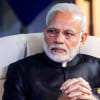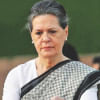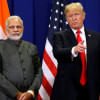Might Modi Lose?

As India's general election enters its second month, most conventional expectations have already been upended. Complacent pundits had long ago concluded that Prime Minister Narendra Modi and his Bharatiya Janata Party (BJP) would win comfortably. But two phases in to the seven-phase election the situation no longer looks quite that simple.
India's autonomous Election Commission prohibits the publication of any exit polls until all seven phases of voting have concluded. (That will happen on June 1, with the result announced on June 4). But unofficial readings of voter sentiment strongly indicate that things are not going the BJP's way. The public, it seems, has simply not been given enough reason to vote for the party a third time.
Those who put Modi in office in 2014 hoping that he would fulfil his promise to spur job creation have no reason to vote for him again. Unemployment rose significantly under his leadership, and though it appears to have fallen more recently, there is good reason to believe that the real unemployment rate is much higher than official figures indicate. Moreover, a staggering 80 percent of Indians have seen their incomes decline since 2014, and both purchasing power and household savings have collapsed. Many blame the government for not adequately protecting their welfare.
To be sure, Modi himself remains popular, thanks to the personality cult he has painstakingly built. But his party's candidates are being met largely with apathy, if not outright disdain. Modi's demeanour reveals his mounting disquiet: his anti-Muslim dog whistles have lately escalated into direct attacks.
Modi has also ramped up his assaults on the opposition Indian National Congress, claiming that the party's manifesto has the "stamp of the Muslim League." He even suggested at a campaign meeting last month that a Congress-led government would redistribute Hindus' private property and personal assets to Muslims.
Beyond wholly misrepresenting the Congress party's positions Modi disparages Muslims as "infiltrators," not Indians, and as "those with more children." Such grossly inflammatory rhetoric demeans his office: a prime minister is supposed to serve all citizens, yet Modi openly expresses contempt for 200 million of them.
Other BJP officials have also gotten in on the fearmongering, further betraying the party's growing desperation. For example, Home Minister Amit Shah declared that if the BJP is defeated, Sharia law will come to India.
Attempting to polarise the electorate on religious grounds is a tried-and-tested BJP tactic. The logic is simple: if the demonisation of Muslims can get even half of India's Hindus (who comprise 80 percent of the population) to forget their other differences and rally around the party, another electoral victory is in the bag.
But this strategy is not foolproof. So, the BJP is also employing other tactics. For starters, it has absorbed a large number of opposition politicians into its ranks, often by coercing those accused of corruption into switching sides to avoid prosecution. The BJP "washing machine"—which "cleans" tainted politicians—has become a national joke.
The BJP has also offered to form alliances with various opposition parties. One of them—the Telugu Desam Party in Andhra Pradesh—tabled a no-confidence motion against Modi's government in the Lok Sabha (lower house) just a few years ago, and its leader has sharply criticised Modi. Now, suddenly, all has been forgiven.
The BJP's very public attempts to woo the Biju Janata Dal in the eastern state of Odisha and the Akali Dal in the western state of Punjab—both of which abandoned the BJP during previous coalitions—were less successful. Both parties spurned the BJP's entreaties.
When its attempts at persuasion and co-optation fail, the BJP turns to outright intimidation. Delhi Chief Minister Arvind Kejriwal—the president of the opposition Aam Aadmi Party, which is in power in Delhi and Punjab—was thrown in jail after a midnight arrest, part of an ongoing investigation. Kejriwal's deputy has been in jail for a year, but no charges have yet been brought against him.
As for Congress, its bank accounts were frozen at the start of the campaign, and party leader Rahul Gandhi's helicopter was raided last month in an abortive search for illicit booty. These are not the actions of a confident party with abundant popular support, but rather of a party that feels power slipping from its grasp.
The BJP sailed through the last general election in 2019, winning every parliamentary seat in six states, all but one seat in three states, and all but two seats in two states. In all these states, the BJP has only one way to go: down. Even if it loses just a handful of seats in each, it will cumulatively lose its majority, which stands at just 32 seats.
And there is a good chance that will happen. After all, in 2019, the BJP got a major boost from a terrorist attack on a military convoy in Indian-administered Kashmir, which was carried out just a couple of months before the vote by the Pakistan-based group Jaish-e-Mohammed. With no such event galvanising Indian voters today, the BJP cannot hope to replicate its performance from the last election.
The public has had enough of the BJP's broken promises, and the opposition is seized by a new confidence. Change is in the air.
Shashi Tharoor, a former UN under-secretary-general and former Indian Minister of State for External Affairs and Minister of State for Human Resource Development, is an MP for the Indian National Congress.
Views expressed in this article are the author's own.
Follow The Daily Star Opinion on Facebook for the latest opinions, commentaries and analyses by experts and professionals. To contribute your article or letter to The Daily Star Opinion, see our guidelines for submission.

 For all latest news, follow The Daily Star's Google News channel.
For all latest news, follow The Daily Star's Google News channel. 










Comments